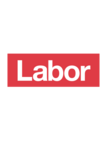
The Country Liberal Party of the Northern Territory (CLP), commonly known as the Country Liberals, is a centre-right and conservative political party in Australia's Northern Territory. In territory politics, it operates in a two-party system with the Australian Labor Party (ALP). It also contests federal elections as an affiliate of the Liberal Party of Australia and National Party of Australia, the two partners in the federal coalition.

The Australia Party was a minor centrist political party in Australia from 1969 to 1986. It was most influential in the late 1960s and early 1970s.

The Legislative Council, or upper house, is one of the two chambers of the Parliament of South Australia. Its central purpose is to act as a house of review for legislation passed through the lower house, the House of Assembly. It sits in Parliament House in the state capital, Adelaide.

The Family First Party was a conservative political party in Australia which existed from 2002 to 2017. It was founded in South Australia where it enjoyed its greatest electoral support. Since the demise of the Australian Conservatives into which it merged, it has been refounded in that state as the Family First Party (2021), where it contested the state election in 2022, but failed to win a seat.

The Liberal–National Coalition, commonly known simply as the Coalition or the LNP, is an alliance of centre-right to right-wing political parties that forms one of the two major groupings in Australian federal politics. The two partners in the Coalition are the Liberal Party of Australia and the National Party of Australia. Its main opponent is the Australian Labor Party (ALP); the two forces are often regarded as operating in a two-party system. The Coalition was last in government from 2013 to 2022. The group is led by Peter Dutton, who succeeded Scott Morrison after the 2022 federal election.

The Shooters, Fishers and Farmers Party (SFF) is a conservative Australian political party. It primarily advocates for increased funding and services for rural and regional Australia, protecting the right to farm, enhancing commercial and recreational fishing, and relaxing gun control for citizens.
This is a list of members of the Western Australian Legislative Council between 22 May 2001 and 21 May 2005:

Australian Greens SA is a green political party located in the Australian state of South Australia. It is a member of the federation of the Australian Greens party.
Members of the New South Wales Legislative Council who served in the 48th Parliament were elected at the 1978, 1981 and 1984 elections. Members served for three terms of the Legislative Assembly, which, as a result of the 1981 referendum meant the maximum term was twelve years. The 15 members elected in 1978 did not face re-election until 1988, the 15 members elected in 1981 did not face re-election until 1992 and the 15 members elected in 1984 did not face re-election until 1996. The President was Johno Johnson.

The 1955 Australian federal election was held in Australia on 10 December 1955. All 122 seats in the House of Representatives and 30 of the 60 seats in the Senate were up for election. An early election was called to bring the House and Senate elections back in line; the previous election in 1954 had been House-only. The incumbent Liberal–Country coalition led by Prime Minister Robert Menzies increased its majority over the opposition Labor Party, led by H. V. Evatt.

The 1954 Australian federal election were held in Australia on 29 May 1954. All 121 seats in the House of Representatives were up for election, but no Senate election took place. The incumbent Liberal–Country coalition led by Prime Minister Robert Menzies defeated the opposition Labor Party led by H. V. Evatt, despite losing the two-party preferred vote. Although the ALP won the two-party preferred vote, six Coalition seats were uncontested compared to one ALP seat. The Psephos blog makes clear that if all seats had been contested, the Coalition would have recorded a higher primary vote than the ALP and possibly also a higher two-party preferred vote.
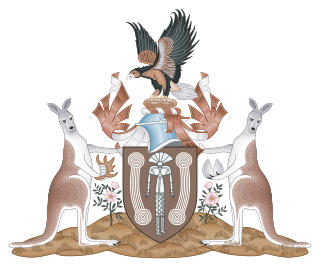
The Northern Territory Legislative Council was the partly elected governing body of the Northern Territory of Australia from 1947 until its replacement by the fully elected Northern Territory Legislative Assembly in 1974.
The Australian Capital Territory House of Assembly was the main elected representative body of the Australian Capital Territory between 1975 and 1986, during which time preparation began for the granting of self-government to the Territory. The Assembly had a largely advisory role, with most of the power over the Territory being in the hands of the relevant federal minister.
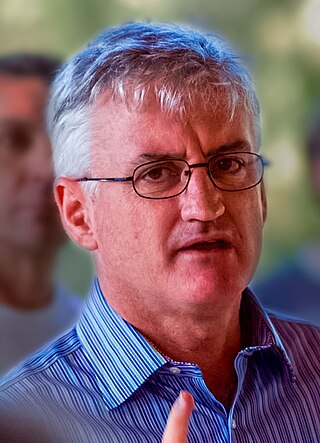
The 2008 Western Australian state election was held on Saturday 6 September 2008 to elect 59 members to the Legislative Assembly and 36 members to the Legislative Council. The incumbent centre-left Labor Party government, in power since the 2001 election and led since 25 January 2006 by Premier Alan Carpenter, was defeated by the centre-right Liberal Party opposition, led by Opposition Leader Colin Barnett since 6 August 2008.
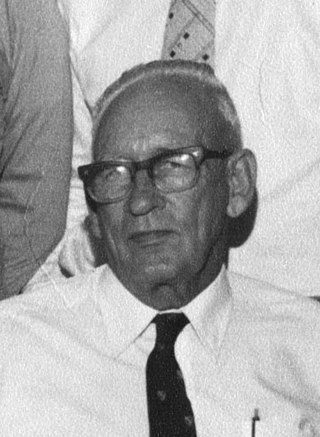
Rupert James Kentish was an Australian politician. He was a Country Party member of the Northern Territory Legislative Council from 1968 to 1974 and a Country Liberal Party member of the Northern Territory Legislative Assembly from 1974 to 1977.
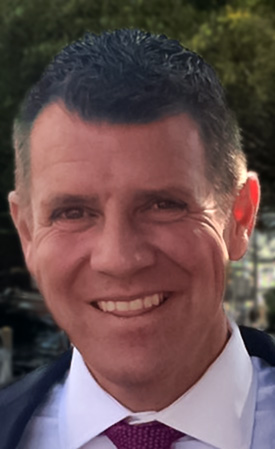
The 2015 New South Wales state election was held on Saturday 28 March 2015. Members were elected to all 93 seats in the Legislative Assembly using optional preferential voting. Members were also elected to 21 of the 42 seats in the Legislative Council using optional preferential proportional representation voting. The election was conducted by the New South Wales Electoral Commission.

The 2017 Western Australian state election was held on Saturday 11 March 2017 to elect members to the Parliament of Western Australia, including all 59 seats in the Legislative Assembly and all 36 seats in the Legislative Council. The eight-and-a-half-year two-term incumbent Liberal–WA National government, led by Premier Colin Barnett, was defeated in a landslide by the Labor opposition, led by Opposition Leader Mark McGowan.
Periodic elections for the Tasmanian Legislative Council were held on 2 May 2009. The three seats up for election were Derwent, held by Labor MLC Michael Aird; Mersey, held by retiring independent MLC Norma Jamieson; and Windermere, held by independent MLC Ivan Dean. These seats were last contested in 2003.
This is a list of members of the Northern Territory Legislative Council from 26 October 1968 to 23 October 1971.

The 1965 Northern Territory legislative election was held on 30 October 1965 to elect eight members of the partly elected Northern Territory Legislative Council, the governing body of the Northern Territory of Australia.
